High-throughput Sequencing Technology Accelerates Global Thalassemia Prevention | TIF Webinar Recap
2025-01-22
On January 21st, the Thalassemia International Federation (TIF) and BGI Genomics jointly hosted an educational webinar focused on thalassemia prevention in high-prevalence regions. The event featured five international experts from four different countries. Experts emphasized that thalassemia is a preventable disease and high-throughput sequencing (HTS) technologies can accelerate prevention efforts.
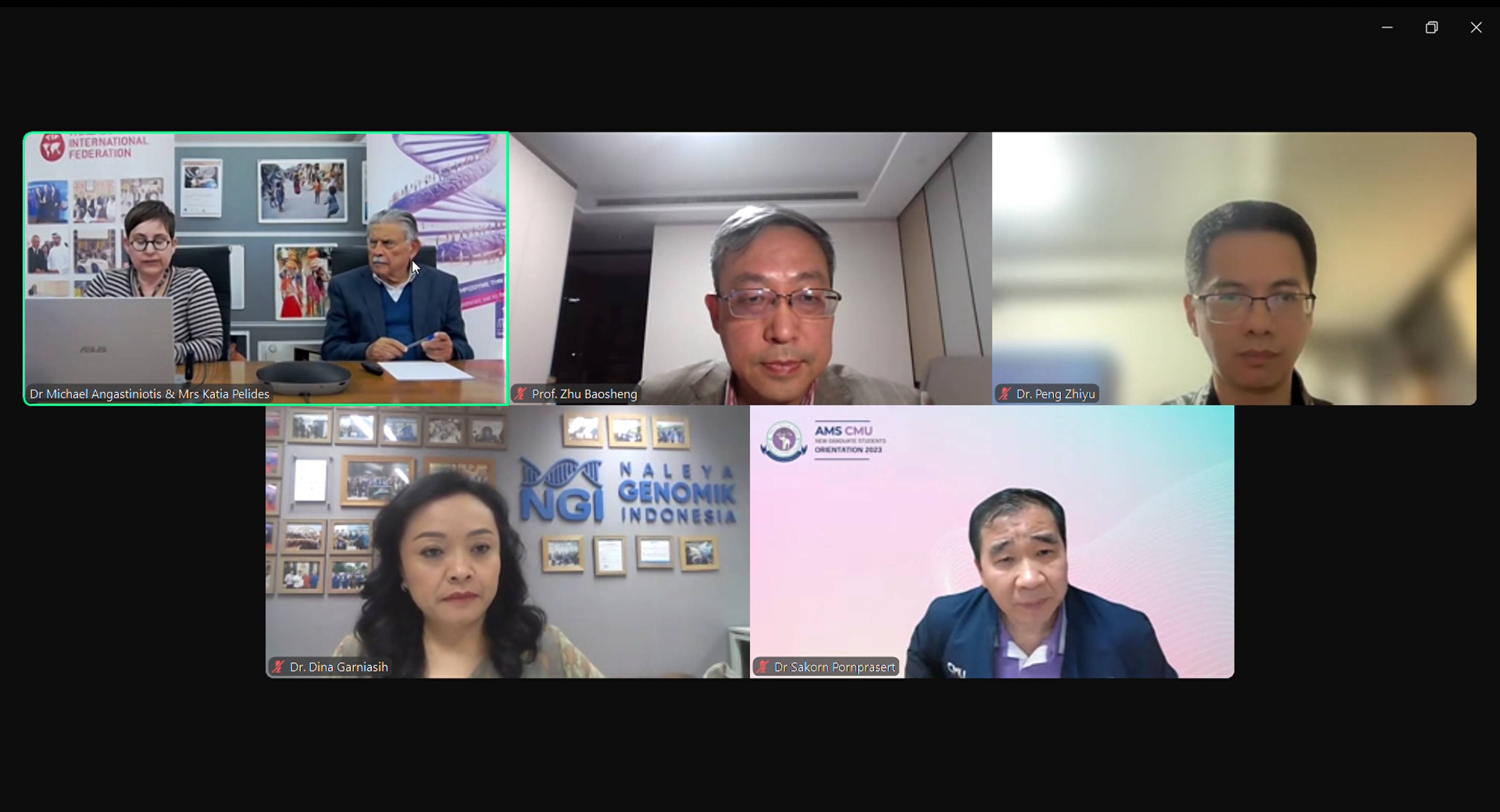
During the webinar, speakers shared insights on key topics, including epidemiological research in Southeast Asia, the application of HTS in genetic testing, and clinical experiences from Thailand, Indonesia, and China in tackling thalassemia prevention.
The Global Challenge of Thalassemia
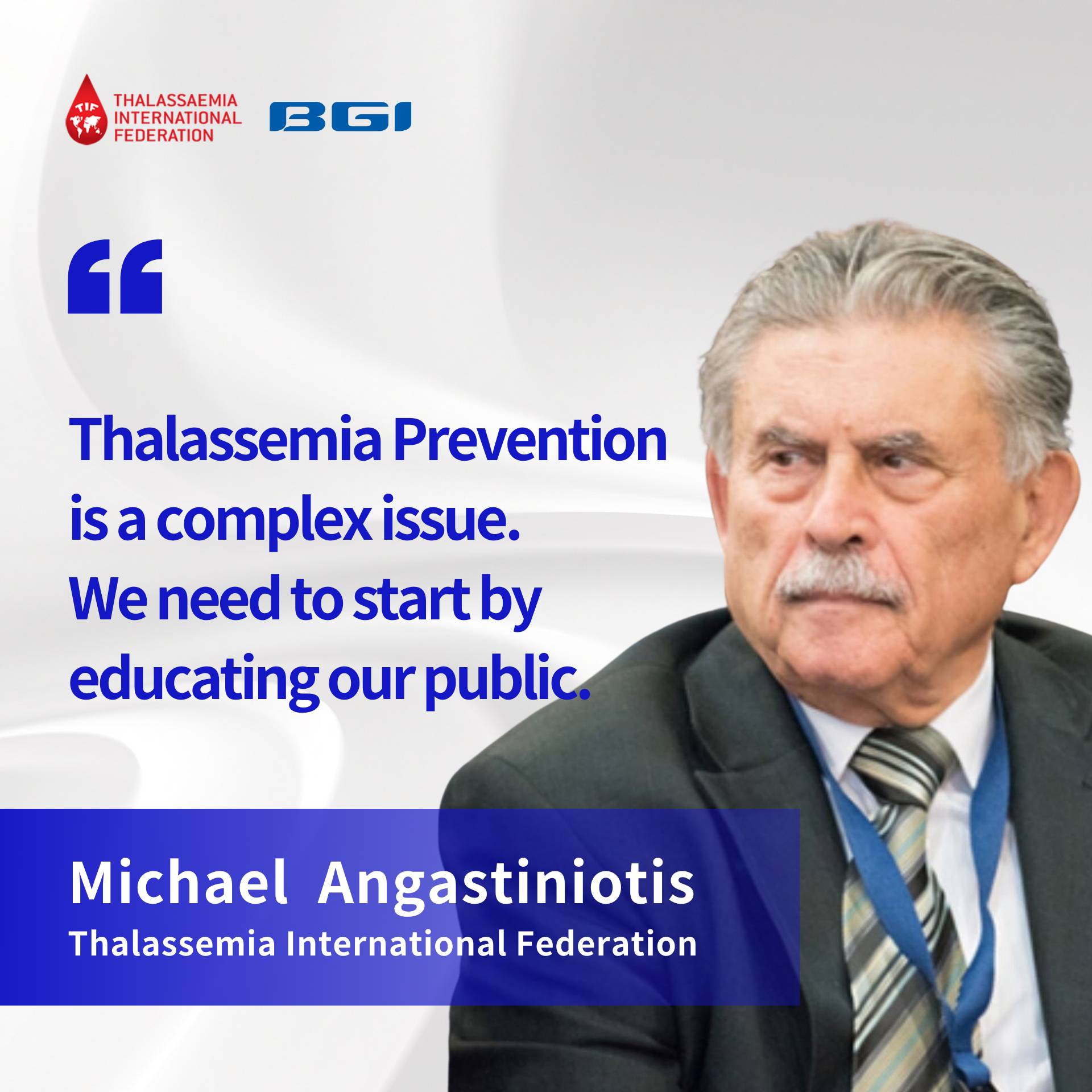
Thalassemia is a preventable disease, but effective prevention and control measures have not been widely implemented. Medical Advisor Dr. Michael Angastiniotis from TIF believes that, “thalassemia prevention is a complex issue. We need to start by educating our public.”
In Thailand, with 800,000 newborns, this results in over 4,200 babies potentially facing severe conditions. As Dr. Sakorn Pornprasert from Chiang Mai University shared, “In every 1,000 live births, six could be suffering from severe thalassemia conditions.” The societal burden could amount to approximately $612 million USD over their lifetimes.
Dr. Dina Garniasih from Harapan Kita Child and Mother Hospital, under Indonesia’s Ministry of Health, highlighted that while thalassemia rates are rising in Indonesia, the low screening rate exacerbates the issue. Despite medical advancements improving survival rates for patients, the financial burden and pressure on healthcare systems remain substantial challenges. Dr. Michael Angastiniotis, TIF Medical Advisor, also pointed out that many thalassemia-prevalent countries are facing blood donation shortages, creating an additional challenge for patients who rely on regular transfusions.
Conventional screening for thalassemia involves hematological analysis, with genetic testing typically performed only for individuals or couples on common variants. However, this approach has limitations, especially for detecting uncommon mutations. In China, Professor Zhu Baosheng from First People’s Hospital of Yunnan Province highlighted concerns about the conventional method. He explained that it requires multiple blood tests and clinic visits, making it time-consuming and potentially missing crucial opportunities for prenatal diagnosis. Additionally, misdiagnoses due to false negatives are still a challenge in high-prevalence regions like southern China.
Genetic Testing: Effective for Thalassemia Screening
To address these challenges, experts agree that genetic testing should be implemented as the screening method. HTS-based genetic testing offers greater sensitivity and specificity, and it does so without adding significant costs.
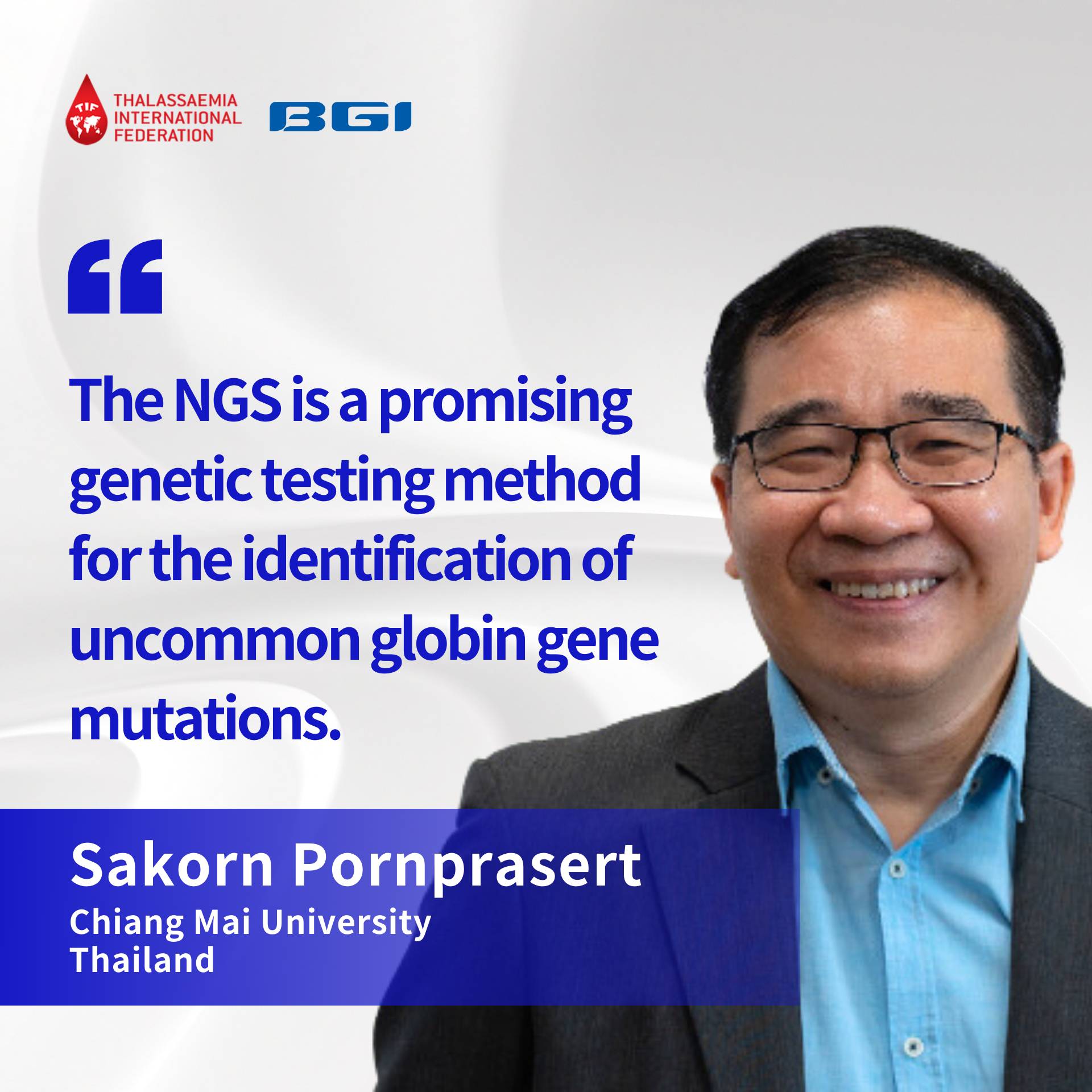
The adoption of HTS technology has significantly improved detection rates compared to conventional methods, offering a valuable model for high-prevalence regions. As Prof. Sakorn Pornprasert noted, “NGS is a promising genetic testing method for identifying uncommon gene mutations, which is crucial for thalassemia screening and control.”
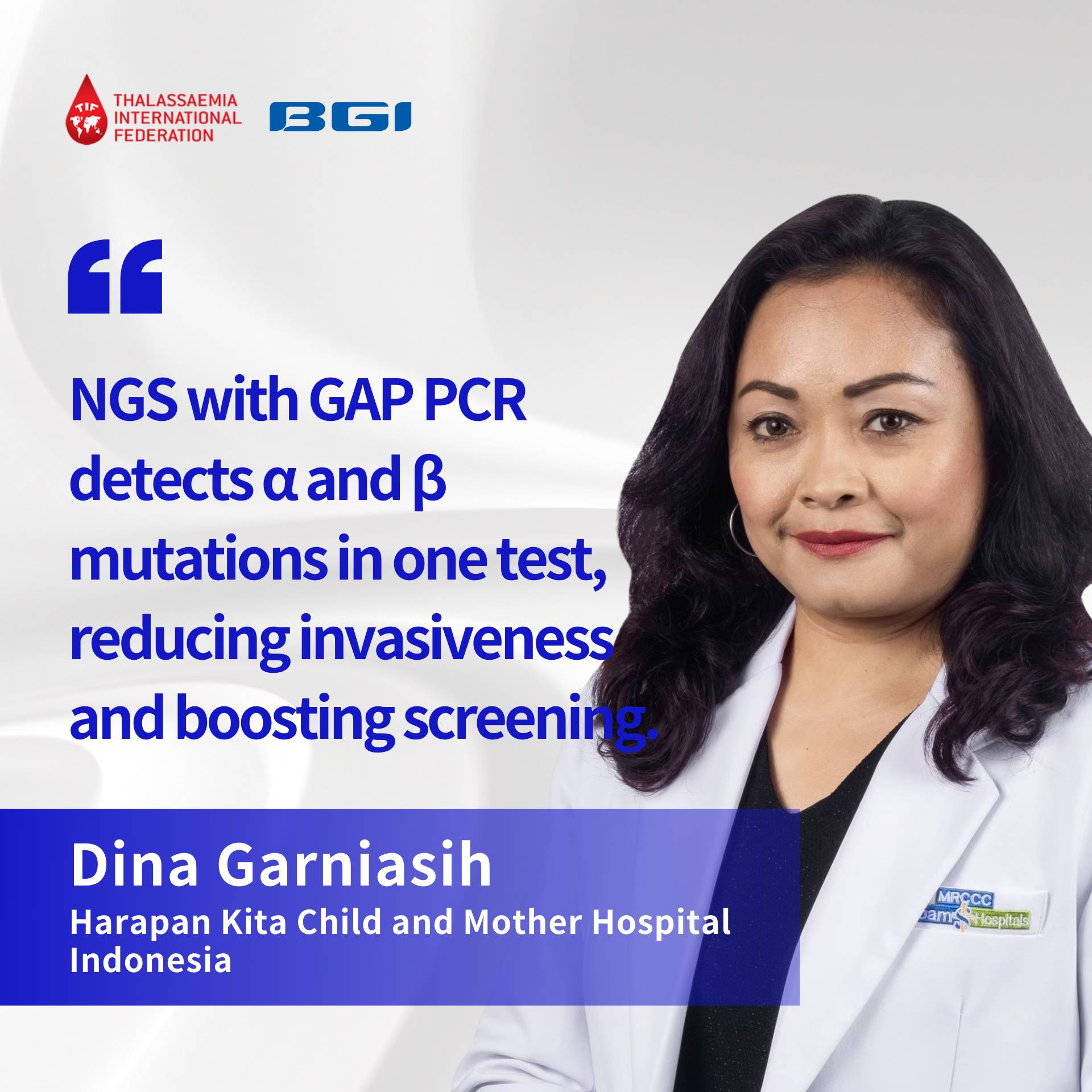
In a joint study between Harapan Kita Child and Mother Hospital and BGI Genomics, the integration of HTS into the thalassemia testing improved overall outcomes. Dr. Garniasih pointed out that “Combining NGS and GAP PCR enables single-test detection of alpha and beta mutations, reducing invasiveness and boosting screening rates.”
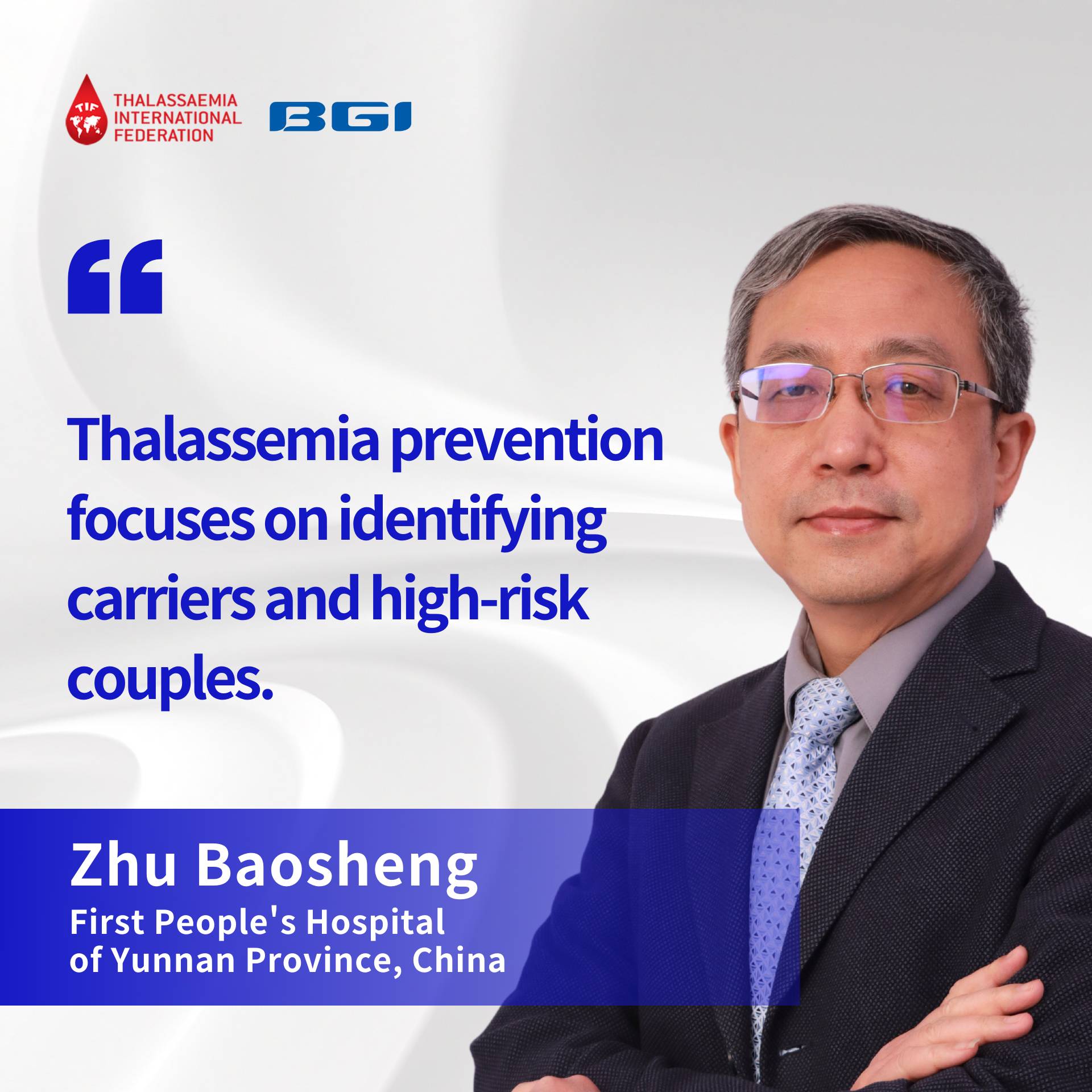
Active on the front line of preventing birth defects in Yunnan Province, Prof. Zhu, with decades of clinical experience, suggests that thalassemia prevention should focus on identifying carriers and high-risk couples. The HTS-based method is more sensitive and accurate than the traditional method.
Advancing Screening with high-throughput Sequencing
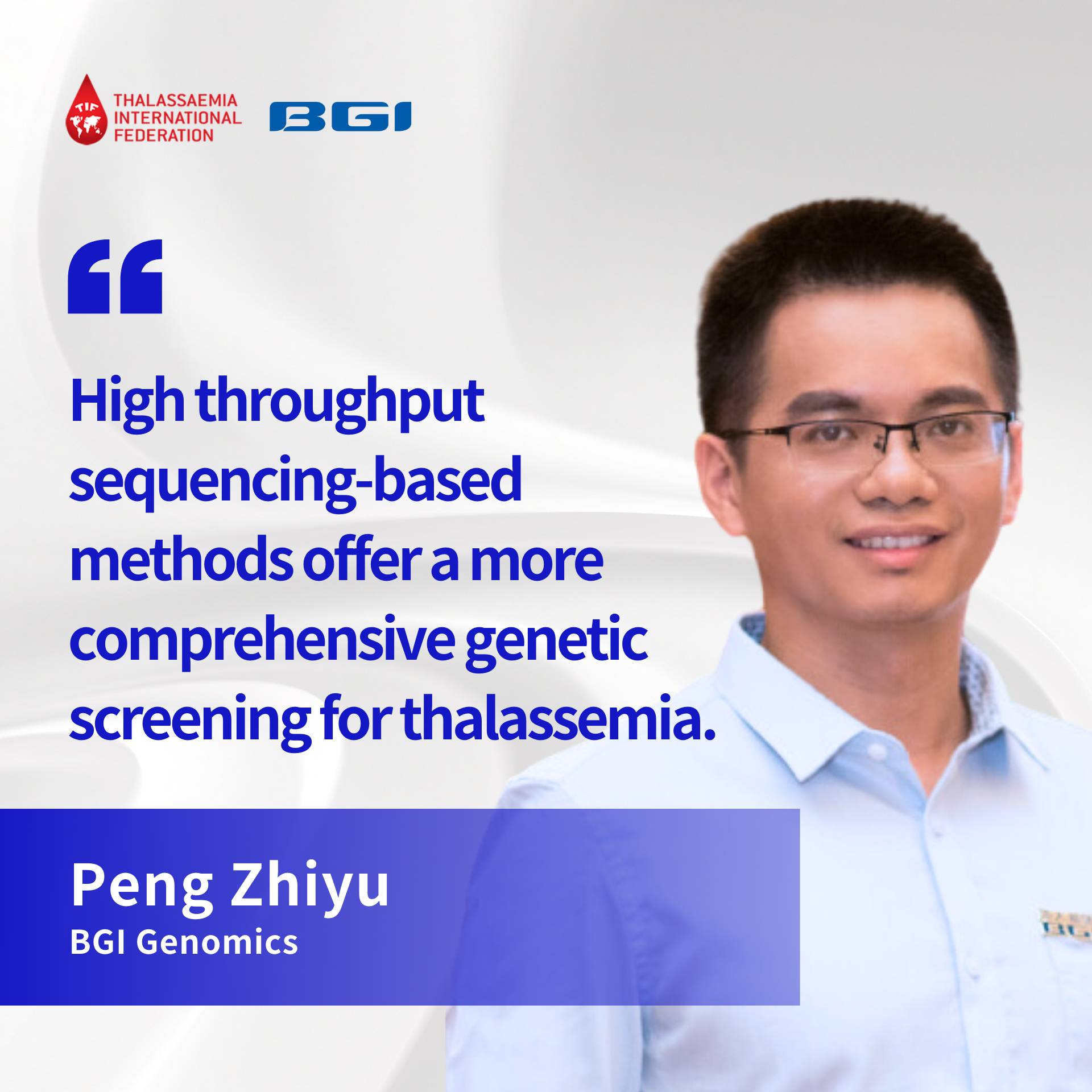
Advancements in sequencing technology have made HTS, featuring both short-read and long-read sequencing, as a promising technique for thalassemia screening. HTS detected more pathogenic variants and at-risk couples than the traditional method, which incurs no additional cost compared to the conventional strategy. Dr. Peng Zhiyu, Vice President of BGI Genomics, suggested, “High-throughput sequencing-based methods offer a more comprehensive genetic screening for thalassemia.”
This new screening strategy of using genetic testing as a first-line screening method reduces the under-detection rate of thalassemia carriers, which are crucial in thalassemia screening. Dr. Peng shared findings from joint studies between BGI Genomics and international health organizations. The studies revealed that HTS detected more thalassemia variants. It also identified variants linked to sickle cell disease and other hemoglobinopathies.
Building a Comprehensive Network for Thalassemia Prevention
Through HTS technology, BGI Genomics is working to establish an international academic consortium for thalassemia prevention. This consortium aims to develop and apply new technologies for thalassemia prevention, build a comprehensive database of pathogenic variants, and support the best clinical practices for thalassemia screening and diagnosis.
The consortium currently includes members of clinicians, researchers, and patients from China, Thailand, Malaysia, Indonesia, and Vienna. The consortium provides free implementation of new technologies for pilot projects, training programs, and additional support for study design. It also provides HLA typing for thalassemia major families, and this program has successfully performed 20,000 tests for over 7,000 families as of January 2025. We welcome members from all over the world to join the consortium and accelerate the global prevention of thalassemia. For more information, please contact Dr. Peng at pengzhiyu@bgi.com.
In summary, the webinar provided valuable insights into the current state of thalassemia prevention and the role of advanced genetic screening technologies. Implementing genetic testing methods such as HTS, regions with high thalassemia prevalence can improve early detection rates, reduce misdiagnoses, and ultimately alleviate the societal and healthcare burdens of this preventable disease.
About BGI Genomics
BGI Genomics, headquartered in Shenzhen, China, is the world's leading integrated solutions provider of precision medicine. Its services cover more than 100 countries and regions and involve more than 2,300 medical institutions. In July 2017, as a subsidiary of BGI Group, BGI Genomics (300676.SZ) officially began trading on the Shenzhen Stock Exchange.